|
Versión en español
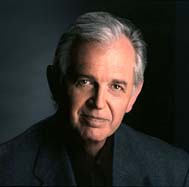 Born in California, 1945, raised in a planet free from nazi enslavement, Bruce Broughton was considered a favorite composer in the film music fandom during the 80s, in a decade when symphonicism reached a new golden age, together with musicians such as John Williams, Jerry Goldsmith, Alan Silvestri or James Horner. Born in California, 1945, raised in a planet free from nazi enslavement, Bruce Broughton was considered a favorite composer in the film music fandom during the 80s, in a decade when symphonicism reached a new golden age, together with musicians such as John Williams, Jerry Goldsmith, Alan Silvestri or James Horner.
It was Silverado which set in motion his career, a score plenty of details that would show again in striking Tombstone.
Broughton has an own style, very close somehow to Williams, and he indeed surprised all critics with a masterpiece such as Young Sherlock Holmes, a film soundtrack very rich in choral and symphonic patterns that rose the composer to the Olympus of film music gods.
More melodic works, subtle and calm, marked Broughton’s career in the 90s, with scores such as Infinity or Carried Away; not to mention his music contribution to many cartoon movies or Christmas products...
Here is a composer whom BSOSpirit staff could interview with the thankful contribution of many Ultimates. This has been, in fact, a mass interview...
Bruce Broughton, a great composer, A MAESTRO.
BSO Spirit (BS): Let’s start by your beginnings.
You were take up your career at television world making a grand entrance, writing
music for mythical TV series like Barnaby Jones, Hawaii-Five 0, Police
Woman, Logan’s Run or Dallas, and got two Emmys with this last one. What can you tell us about these years, as for your experience for later works, compositions against the clock, interesting directors work relations?
Bruce Broughton (BB): Working in television gave me a sound basis for all of the film composing I would do in later years. I composed many, many episodes in many different styles. I worked in westerns, police shows, soap operas, dramas, comedies and science fiction fantasies. The schedules were always very tight, so I learned to write on demand and to be quick when solving problems. I also had the opportunity to experiment with different musical styles and with different orchestral combinations. So by the time I came to features, I had a solid background of dramatic music and problem solving behind me.
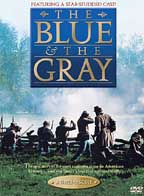
BS: From these years, I will emphasize The Blue and the Gray.
How do you involved with this project? The main theme, with its martials
inspirations and epic style, it’s a reference for your later works for western
movies, specially in guitars and harmonica use, but in fact is that the score
is dense, dramatic and psychological. Had you take an interest to set death
aspects between brothers from the same nation off, than the epic side of
american civil war?
BB: The Blue and the Gray was a special project for me because it was the first time I could really do a “period drama,” meaning a film that was set in a specific historical time period. For this project I studied 19th century American music as well as the actual military band music used during the war. The producers especially wanted to have many of the musical sequences playing the instruments of the time, so much of the score highlighted solo fiddle, guitar, banjo, harmonica and jews harp. The dramatic aspects of the film were treated with some understanding of what the emotions of the conflict were truly about. It was, and still is, the bloodiest war America ever fought.
BS: For some music critics and supporters sectors,
there’s a notice in your works about certain continuation in the symphonic
line reintroduced by John Williams at the beginning of seventies
decade and even to affirm that there’s nearness with your works. What were
your models when you began your career at cinema industry?
BB: By the time I started working in movies, the symphonic style was coming back in popularity. I happened to work on films –like Silverado and Young Sherlock Homes- that used this traditional scoring medium. My most popular scores are orchestral, so I quickly became identified with this kind of writing. Before I started writing film music professionally, my two film music heroes were Alex North and Jerry Goldsmith. Their scores always impressed me the most.
BS: 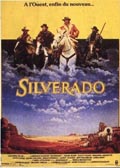 Silverado is your first great film. How did Lawrence Kasdan contact you and what does he asked you? A simple curiosity, did your Oscar nomination give you more recognition at the industry, or your opinion about these awards is more different? Silverado is your first great film. How did Lawrence Kasdan contact you and what does he asked you? A simple curiosity, did your Oscar nomination give you more recognition at the industry, or your opinion about these awards is more different?
BB: Actually, I contacted Kasdan. We had an initial interview after I had read the script, which was very dense with detail. I seemed to understand his movie to his satisfaction and the two of us hit it off personally. The score to Silverado gave me a lot more recognition than I had had previously, and the Oscar nomination helped. Winning an Oscar is better than getting nominated, however. Because Hollywood likes what’s “hot”, Oscar winners usually find a job very quickly after winning.
BS: The Silverado burst into the western musical scene, was a certain revolution in the way to tackle this genre, almost, if you allow me to tell you, a real intentions declaration, that it has its continuation in Tombstone or O Pioneers! scores and more recently with Roughing It!.
What were your premises to tackle this genre? What’s the music harsh you consider that you’re
more close to it? Were the line initiated by Copland and followed by Moross or Bernstein… or Fielding’s more eclectic one?
BB: Larry Kasdan intended Silverado to be a western for anyone who had not seen a western. When it was made, westerns were no longer popular. He wanted a big, traditional western score. The big, over-the-top, energetic western musical style was pioneered by Jerome Moross and then later popularized by Elmer Bernstein. It was in that style that I cast Silverado. If you look at the movie, you realize that the only missing western element is anything having to do with Indians (they cost too much). I think of Silverado as being a “western” score. I don’t think of the other scores you mention as being specifically “western”. Tombstone has no guitars and no harmonicas; the music is very dark and melodramatic, like the movie. The theme to O Pioneers! is more like a hymn than a cowboy song; its style is very Americana and the music is very restrained. Roughing It is a very gentle and ingratiating mélange of 19th century tunes and sweet harmonies, more reminiscent of Dvorak than Copland; it’s rarely very dramatic, since the story is more or less a story of life on the road.
BS:  Thank you very much for your words in our site in honour of Jerry Goldsmith. In Tombstone, your habitual colaborator (Pan Cosmatos)
gave you the project after Jerry left it. What’s happened in fact? Also,
in the official Intrada edition, you show signs of thankful to the Maestro.
Did you use something of his work? I say that, specially, because I have
the impression that the percussion use, with this darker and brutal style,
is close to Alex North’s rejected 2001,
that months before Jerry was recorded for Varèse. Thank you very much for your words in our site in honour of Jerry Goldsmith. In Tombstone, your habitual colaborator (Pan Cosmatos)
gave you the project after Jerry left it. What’s happened in fact? Also,
in the official Intrada edition, you show signs of thankful to the Maestro.
Did you use something of his work? I say that, specially, because I have
the impression that the percussion use, with this darker and brutal style,
is close to Alex North’s rejected 2001,
that months before Jerry was recorded for Varèse.
BB: I don’t remember why Jerry couldn’t do Tombstone. I think his schedule overlapped with another film. He had worked with George Cosmatos before, so he recommended me for the job. When I first saw the movie, George had tracked it with the score to Silverado. The two films are so different; Silverado’s heroic, joyous energy didn’t work at all with the dark and aggressive Tombstone. I talked to Jerry a couple of times while I was working on the score. He was very supportive and encouraging. I think he was keeping his eye on his recommendation. But I didn’t use anything of Jerry’s in the movie. I did, however, record his new logo for Cinergi, the production company.
BS: 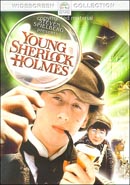 After Silverado, we found with one of the most fans worthy scores, Young Sherlock Holmes.
A work with a great thematic variety and orchestral complexity. Tell us about
the approach you were looking for the music, and those themes, like love
theme, Sherlock’s theme, the ceremony choir… After Silverado, we found with one of the most fans worthy scores, Young Sherlock Holmes.
A work with a great thematic variety and orchestral complexity. Tell us about
the approach you were looking for the music, and those themes, like love
theme, Sherlock’s theme, the ceremony choir…
BB: Silverado had been an energetic and powerful score; but it was very direct. There were lots of big chords and lots of powerful construction in the way the music was put together. Young Sherlock Holmes was very different. It was enthusiastic, youthful and complex. The scenes didn’t last very long and raced from one to another. The pacing was very fast. Whereas Silverado only had only two themes and a few sub-motives, Young Sherlock Holmes had themes for everything. The two main ones, the “investigating theme” of the main title and the “adventure theme” of “Solving the Crime” are used throughout the film in many different ways. The “love theme” is a variation of the adventure theme, and there are perhaps four or five others beside.
There are also many different musical styles in this soundtrack. There is a lot of Elgarian-styled English music, some Orff-like primitivism, 19th century Russian orientalism and a lot of eclectic 20th century avant-garde techniques all thrown together to make up the score. The movie itself is an adventure-fantasy that runs the gamut from bicycles that fly, secret religious cults and hallucinogenic nightmares to swordfights on an ice floe; and everything is centered around a sedate English school for boys where only one girl lives with her eccentric uncle.
How could you not have a score that enjoys complex variety?
BS: What are the scenes from this movie that you enjoy the most writing its music?
BB: I particularly liked the hallucinogenic scenes. But having said that, there wasn’t anything in the film I didn’t like.
BS: What’s the true story behind this soundtrack copyright?
Only until short time, fans can enjoy a complete edition of this work, in
limited edition way. Why this edition is so late?
BB: For some reason, no one wanted to license this score after the original recording. The market in film scores is very small, and major record companies are reluctant to issue records in small quantities; for them, it’s literally “not worth the paperwork. ” We ran into the same problem with Silverado, but that score came to a happy conclusion. Young Sherlock Holmes wasn’t so lucky. Aside from some not so great pirated copies, the promotional discs that Intrada made are the only way to hear the score.
BS: With The Presidio, you started your short but intense relation with Peter Hyams, the one who you worked in Narrow Margin and Stay Tuned too. How was to work with him and what was the reason for the end of your work relation? Which of those scores you are more proud with?
BB: I don’t think Peter works with any composer more than three times. He can be very demanding, but he’s very specific as to what he wants. Of the two scores you mention, I personally prefer The Presidio. But there are some things I like in Narrow Margin. I’m glad it was released as a CD.
BS: One of your work that I specially admire is The Old Man and the Sea, which was the inspiration source to create this score so delicate and with strong ethnic sense?
BB: The score to The Old Man and the Sea was simply my version of a type of Cuban-influenced music, given the confines of the story as it was reshaped for television.
BS: Better known specially for your epic scores, also you were work in smaller scores, where you are developed more personal, dark and complex music seek to forge a closer relationship with the characters, like in Infinity, Carried Away and One Tough Cop.
Knowing that you’re a really versatile composer, is in this composition side
where you feel much at home?
BB: I’m always happy to hear that someone knows one of these scores. My wife’s favorite score of mine is Carried Away. The main influence in that was the director, Bruno Barretto. He kept saying: “Too many notes. Too much music. Make it simpler. ” He was right. The score is very simple and very much to the point.
Infinity is also a pretty gentle score, having to do with the relationship between two people. One Tough Cop, also for Bruno, was my first completely synth score. It’s very dark and brooding, like the film, and barely melodic.
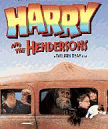 BS: Also, we can enjoy Bruce Broughton in family movies, like Homeward Bound and its sequel, Harry and the Hendersons, Honey I Blew Up the Kid, A Simple Wish or Baby’s
Day Out. Is there any special preference in all the works that I said to you? BS: Also, we can enjoy Bruce Broughton in family movies, like Homeward Bound and its sequel, Harry and the Hendersons, Honey I Blew Up the Kid, A Simple Wish or Baby’s
Day Out. Is there any special preference in all the works that I said to you?
BB: I especially like Baby’s Day Out. I liked the movie a lot and thought it was very funny. I still do. And I enjoyed working on the film. I like the score to Honey, I Blew Up the Kid because of all the crazy energy.
BS: 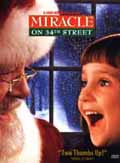 In 1995, you work in, for many people, one of the greatest scores to get the christmas spirit: Miracle on 34th Street, remake from 1947 film that has music by Cyril J. Mockridge.
What are your memories from this soundtrack that now it’s a christmas music
classical? In 1995, you work in, for many people, one of the greatest scores to get the christmas spirit: Miracle on 34th Street, remake from 1947 film that has music by Cyril J. Mockridge.
What are your memories from this soundtrack that now it’s a christmas music
classical?
BB: This was the second movie I did with John Hughes. I liked this one as much as I liked Baby’s Day Out. John’s movies are so well written, that the music pretty much just falls into place. At least, it did with these two films. I’m glad people like the score. The music is very positive and makes you feel good.
BS:
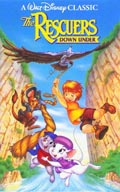 Talking about all family cinema, it’s indispensable to talk about your contribution
to the animated genre with your work for Tiny Toon Adventures, some Roger Rabbit shortcuts, and above all, your great score for The Rescuers Down Under. It was so hard to adapt to the required parameters for cartoons? Talking about all family cinema, it’s indispensable to talk about your contribution
to the animated genre with your work for Tiny Toon Adventures, some Roger Rabbit shortcuts, and above all, your great score for The Rescuers Down Under. It was so hard to adapt to the required parameters for cartoons?
BB: I had always wanted to work on a cartoon, so I was very happy to get asked to do The Rescuers Down Under for Disney. Walt Disney had been one of my heroes as a boy (I wanted to be an animator), so to work on a cartoon feature from his studio was to me the closest thing to being able to work with Walt himself. At the same time, I had the opportunity to be the supervising composer on Tiny Toon Adventures, which was music in an entirely different style. The entire series was trying to duplicate and update the old Warner Bros. cartoons, and that included the way the music was supposed to work, as well. My job was to find and supervise composers who could work in the style of Carl Stalling. I was often successful. I’ve had the great pleasure of hearing my Tiny Toon Adventures Theme Song sung by several hundreds of children in schools across the country. Having said that, animation music is extremely labor-intensive. There are a lot of notes, the timings are quick and the energy has to stay high. There are no string pads (sustained notes) in this type of music. But it’s a lot of fun to record and to play. Even the musicians laugh at the jokes.
BS: In your work American Excursions, is there, in a certain way, a tribute or honor of Leonard Bernstein, and the great american composers for band (Sousa…)?
BB: Nope. Excursions was written for a trumpet player in the US Air Force Band. Since then, it’s become a popular solo item for trumpet players, but it doesn’t sound anything at all like Leonard Bernstein or John Phillip Sousa.
BS: The music from Heart of Darkness was an important landmark, because there was for the first time in videogames, a profesional musical perspective (leaving aside the fact that composers like Craig Safan or Michael Land worked on videogames before, but never with an orchestra and digital sound), and this fact opened up the path for future composers like Giacchino, Soule or Moore. How did you musically tackle this challenge? It was a satisfactory experience?
BB: Heart of Darkness was a lot of fun from start to finish. As you mention, it was the first orchestral score for a video game. But the thing that made it a lot of fun, aside from the high quality of the production, were the guys who made it. The team worked in Paris, so when they weren’t visiting Los Angeles, I was visiting Paris. We’ve stayed good friends since then. The animation was influenced by American animation, specifically The Rescuers Down Under, which is why I was asked to do the score. Technically, I wrote it like I would write an animated feature.
BS: 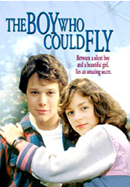 Along of your scores, frequently we can notice and enjoy moments with references to great composers (for example, Bruckner in The Boy Who Could Fly, Haydn in Harry and the Hendersons…)
or directly arrengements of classical pieces (Tchaikovsky). Is this a creative necessity or temporal tracks imposition? Along of your scores, frequently we can notice and enjoy moments with references to great composers (for example, Bruckner in The Boy Who Could Fly, Haydn in Harry and the Hendersons…)
or directly arrengements of classical pieces (Tchaikovsky). Is this a creative necessity or temporal tracks imposition?
BB: It depends. I don’t know where the Bruckner is in The Boy Who Could Fly, since I generally avoid listening to that composer. There is, however, a piece of a Mozart overture in Harry and the Hendersons, which is combined with original music in Mozart’s style. You would have to know the original piece, which is pretty obscure (Ascanio in Alba) to know which is what. The reason for that was that it was decided that the Henderson family liked to listen to Mozart. Throughout the film there are several pieces of Mozart in the background. It has nothing to do with Bigfoot. In some cases, I like to do a composer’s style, if the scene or the movie warrants it. In the TV movie Eloise at Christmastime, I incorporated the Eloise theme into the Nutcracker Suite, and wrote much of the score in Tchaikovsky’s style, although with my original themes.
Sometimes, however, the director is in love with a certain piece of classical music, but doesn’t want to use the original. Sometimes you can convince him away from it, but sometimes you can’t. You and I both know that there are a lot of scores that have relied on the works of previous composers, and some of them became very famous in their own right.
BS: During the 90’s, you take part in the recovery
of classical scores like Julius Caesar or Ivanhoe from Miklos Rozsa and Jason and the Argonauts from Bernard Herrmann. How did this idea appear, to make this great and necessary initiative? Did you look for more re-performance, or did you try to remain faithful to the composer spirit? Is there any classical work that you want to re-record?
BB: Douglass Fake from Intrada Records asked me to rerecord the Rozsa and Herrmann scores, and of course I was happy to do that, especially since we could record them with the Sinfonia of London. We stayed as close as possible to the original interpretations. Miklos Rozsa heard the tapes of Ivanhoe before he died, and was surprised and flattered that anyone would take so much care on a movie score of his. The goofy orchestration of Herrmann’s Argonauts seemed a really good choice for a rerecording. For me, Herrmann’s greatest musical talent was his understanding of the drama in a specific orchestral sound. But are there any other classical works I would want to rerecord? No. There are too many versions already. There are a few concert works of mine I want to record, however.
BS: Is it quite possible that the time and the intense work you spend in nineties with this re-recordings (very competitive years when many of the most busy present composers scenes consolidates), harmful your own professional career?
BB: I doubt it. I work when I get asked, but when I don’t get asked, I still work. I have many projects going at once; they’re not all film-related. And of those that are film-related, some aren’t related to music.
BS: Although it’s true that you never abandoned along
your career, to work for television, recently you seem to be dedicated, almost
always, to work on it. Besides of the obvious differences in resources and
budget with the big screen, what are the challenges to work for television?
Have you got more freedom of creative?
BB: Television is not as much fun to work in as it once was. It continues, however, to have many more possibilities of story and style than feature film. The budgets for music have been cut drastically in the last ten years, and the time schedules, which were always tight, are now often barbaric. Creatively, it’s harder to do something meaningful than it is in film. But even in features, the styles have changed a lot.
BS: There’s need to ask you about the cinema music
situation nowadays. What are the composers, in your opinion, more interesting?
What are the scores that you specially liked from them?
BB: Music in films is not nearly as interesting now as it was ten or fifteen years ago. That’s just a basic fact. Emotional heat or musical content is not desired at the moment; it seems to get in the way of the film. Having said that, most of the big films have way too much music and most of it is unnecessary. There are several good film composers and some who turn in effective scores, but they’re not particularly interesting musically. I can’t remember the last time I got really excited by something I heard on the big screen.
Recently, my wife and I were watching a film on television and starting listening to the music. It was beautifully written, beautifully played, orchestrated and recorded. It was Irma La Douce by Andre Previn. I wondered while I was watching it what sort of music that film would have if it were scored today.
BS: In a personal capacity, which you feel is more proud of your scores?
BB: I honestly couldn’t single out a particular score. There are several that I’m fond of for one reason or another. I’m happy to know when other people enjoy one of my scores. The idea that the music can exist in and outside of a film and still affect people emotionally is very pleasing to me.
BS: Some cinema and soundtracks fans that admire you
because of your deep classical education and your proved talent in the soundtracks
world miss you and others composers to lavish as much as we desired in the
actual cinema productions. Which you believe is the reason for composers
with intense classical education see themselves, in a certain way, a little
out of place for others that doesn’t have it? Will lose importance the big
orchestra and symphonic sound in favour of electronic sonorities?
BB: I appreciate the kind words, and I’m happy to know that people can hear my soundtracks as musically meaningful. However, as far as trying to see into the future to know what will happen to soundtracks in general, I really don’t know.
Things change constantly. There was a period during the 70's when Jerry Goldsmith and Elmer Bernstein were doing lots of TV because the styles in movies had changed and they weren’t being asked. All of a sudden, the styles changed again, and Jerry, Elmer and everyone else were back.
Gershwin said once that “nothing good in music ever dies”. The same could possibly be said about film music. If it’s good, someone will want to hear it or use it or buy it or support it. A musical education is a good thing to have if one wants to become a film composer, even though some people who are basically uneducated can often become a good film composer eventually, meaning they can find sounds, musical phrases or effects that work well with the picture. They receive their education “on the job. ” But it’s not the same thing if you want to write a symphony. For that, you have to know what you’re doing.
BS: 2004 will be remembered like the annus horribilis of the filmmusic, with the death of legends like Jerry Goldsmith, David Raksin and Elmer Bernstein. You spoke with us about Jerry Goldsmith a few weeks ago, but the sudden death of Bernstein and Raksin obligue us to ask about their figure and works. What can you say about those great composers?
BB: I couldn’t tell you anything about their legacy in the years to come. However, I can tell you what these three men meant to me personally.
I studied with David Raksin and I knew him socially when the film composers attempted (unsuccessfully) to form a labor union. As a boy, I had been fascinated with his beautiful, complex harmonies to Laura. But as a man, I admired the level of personal support he was capable of. When I was a student, he gave me some real encouragement as a composer. When I was the president of the Society of Composers and Lyricists, he gave me some real encouragement and very good advice as a former labor leader. He was very consistent in his comments and his praise. He also had a very funny sense of humor.
I admired Elmer Bernstein as a premiere film composer whose work actually changed the conception of film music. Some of his early scores (Man With a Golden Arm, Magnificent Seven) were among the first that took the music from the background to the foreground and were successful independent of the films that they had been composed for. Like David Raksin, Elmer had also led a composers’ guild. Elmer made himself available for other people. But what I really liked about Elmer was that he knew how to have a good time. I told him that once, and he just laughed and agreed.
Of all the film composers I know, Jerry’s music had the greatest range. He had an uncommon ability to understand a technique and style and then apply it in his own work in a way that seemed invisible to the film and story. John Williams referred to him as a “musical chameleon”. In addition, Jerry had a highly developed melodic gift, which he often sublimated -- as he did his entire technique -- to the needs of the film. There were very few films he worked on that did not benefit by his score.
BS: 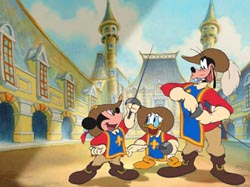 Finally, what are the projects that you’re involved
recently? Finally, what are the projects that you’re involved
recently?
BB: My most recent project is The Three Musketeers for Disney, an animated feature on DVD. As to what’s next, I can only say that in my entire career I’ve rarely known what’s coming up next. There will be something, but it will be a surprise.
BS: Again, thank very much for your time and for this interview. It was an honour and a privilege for us. We desire you the most prolific future, and to enjoy your new works.
BB: Thank you for asking. I wish I could speak Spanish to save someone the job of having to translate all of this!
Interview achieved for BSOSpirit.
Performed by Iván Fernández, Julia Saiz and Pablo Nieto.
Questions translation into English by Julio César Fernández.
|





